- Heritage 101
- Advocacy
- Accessibility for Historic Places
- Climate & Sustainability
- Cultural Maps
- Heritage Place Conservation
- Heritage Policy & Legislation
- Homeowners
- Intangible Cultural Heritage
- Reconciliation
- Indigenous Cultural Heritage
- Setting the Bar: A Reconciliation Guide for Heritage
- 1. Heritage and Reconciliation Pledge
- 2. Acknowledging Land and People
- 3. Celebrating Days of Recognition and Commemoration
- 4. With a Commitment to Learn
- 5. Committing to Strategic Organizational Diversity
- 6. Mission-Making Room for Reconciliation
- 7. Possession, Interpretation, Repatriation and Cultural Care
- 8. Shared Decision Making
- 9. Statements of Significance and other heritage planning documents
- 10. Heritage Conservation Tools, Local Government Act
- Racism: Do Not Let the Forgetting Prevail
- Taking Action: resources for diversity and inclusion
- Webinars On-Demand
What are some of the principles of listing managing and safeguarding intangible heritage? Is there a universal practice of safeguarding intangible heritage?
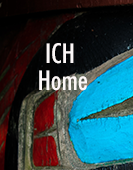 |
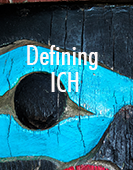 |
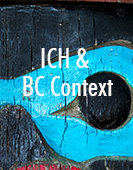 |
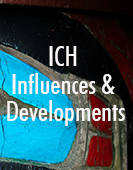 |
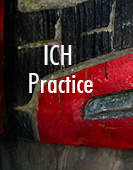 |
 |
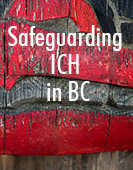 |
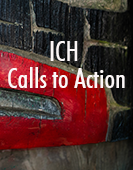 |
George
I’ve learned four things through working with indigenous peoples, but also with other descendant communities.
The first is that heritage, especially indigenous heritage is not public domain, free for the taking. But cultural appropriation is a major issue we see every day. And it is often indigenous heritage that is being appropriated and commodified, which is disrespectful and harmful to them. The problem is exacerbated by the fact that Indigenous peoples have limited resources at their disposal, and there are few legal means of protecting ICH.
Second, access to and control over one’s own heritage should be seen as a basic human right. This is essential to an individual’s (or group’s) well-being identity, history, and worldview.
Third, Indigenous peoples have experienced few benefits from research on their heritage and have suffered great economic and cultural harm as a result. They have often been considered research subjects, not collaborators or partners.
Finally, heritage holders—whomever they are—are the ones best positioned and most knowledgeable about how their heritage should be protected; about what aspects of their heritage they want to share (and on their own terms), and what aspects they want kept private.
Katharine
I would just reiterate the notion of human rights in this area, and underline those articles of the UNDRIP that concern cultural heritage. They say that Indigenous peoples have the right to define and safeguard their own cultural heritage and that states must provide the mechanisms to ensure those rights are protected. This principle applies as much for legislating and defining as it does for safeguarding practices.
Certainly, principles of community ownership community-based documentation, and inventory of heritage are really key principles.
Agnieszka
I agree, ICH is definitely ground up.
The only issue is that if young people are no longer interested in heritage, then who is heritage being transmitted for? These are some of the problems related to, for example, the trapping or harvesting lifestyle. In my work with several Anishinaabe trappers, some of the young men have expressed that they don’t want to trap. They may want to hunt but trapping is much more of a long-term investment. A few trappers have asked the question of ‘Who’s going to care for my trap line when I’m gone?’
Some of the young men do not want to do the hard work that comes in with that activity, especially since trapping is pretty much a full-time job. In my own life and personal experience, I found that transmitting cultural heritage is indeed a full-time job. This is especially true in language retention. If you want to retain your language, you have to make many sacrifices in order to be in the language environment. If you want to practice and be an ICH custodian, you really have to devote your entire life to it.
And the same goes for trapping – if you would like to be a trapper and maintain all the skills and knowledge associated with that activity, you need to make this your life because you cannot just go trapping on the weekend or in the afternoons. You really have to go in there, in October and come back in March. You need to face the bugs and the discomfort. And so, I absolutely agree with both of my colleagues here, that retaining ones’ own cultural heritage is a basic human right and there needs to be some policy work ensuring that transmission. As part of that human right, it is important individuals who are really keen on retaining their cultural elements and passing them on have the resources and the abilities to do that.
